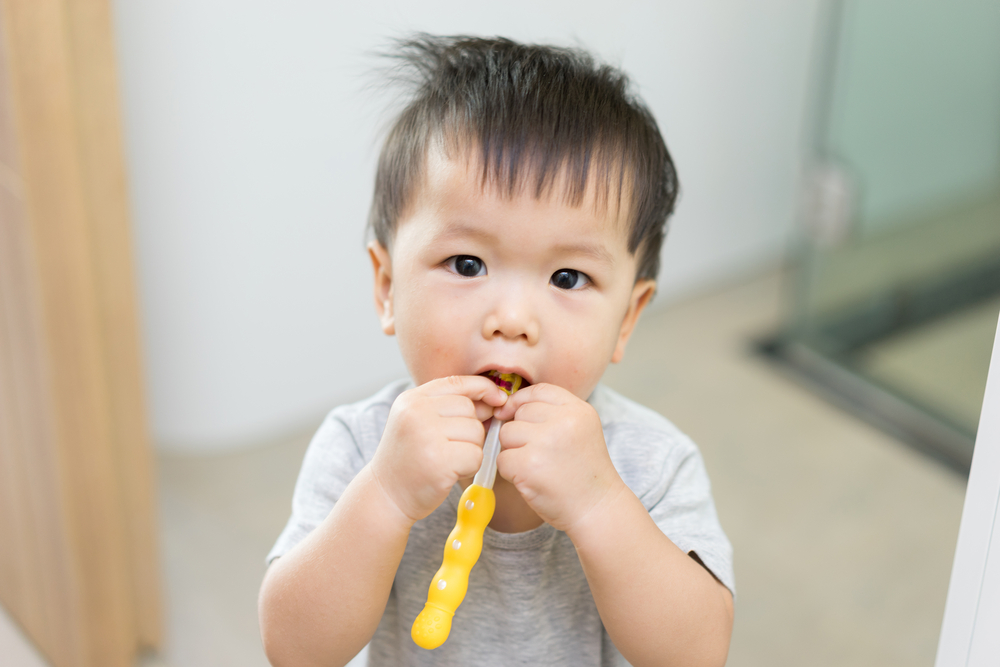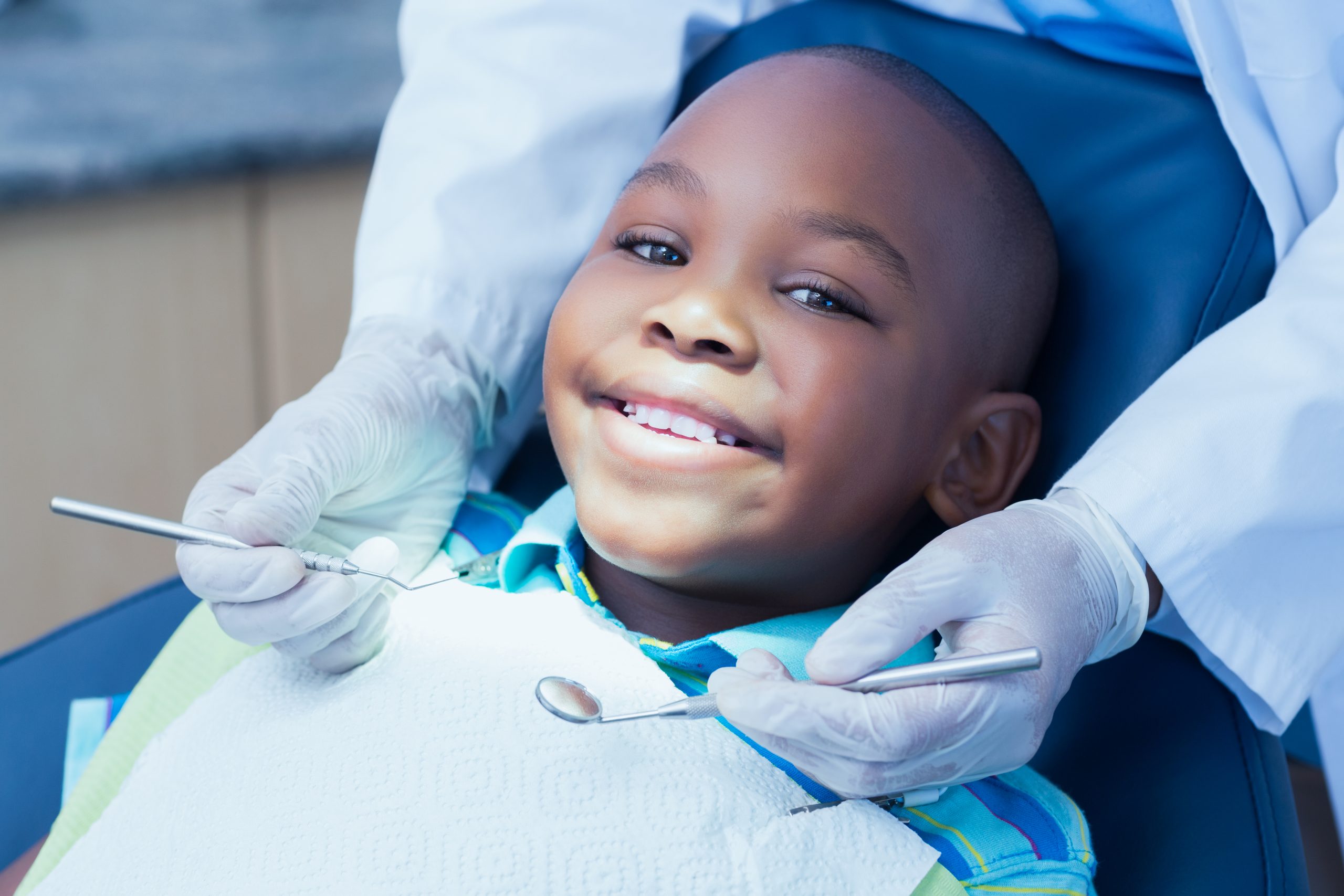 As leading pediatric dentists in the Philadelphia area, our team at Penn Dental Family Practice has detailed training and extensive practical experience in the care of children in a dental environment and the many dental issues they commonly experience. We adhere to the recommendations of the American Dental Association, which recommends that every child should visit a dentist by the time their first tooth appears, but no later than their first birthday.
As leading pediatric dentists in the Philadelphia area, our team at Penn Dental Family Practice has detailed training and extensive practical experience in the care of children in a dental environment and the many dental issues they commonly experience. We adhere to the recommendations of the American Dental Association, which recommends that every child should visit a dentist by the time their first tooth appears, but no later than their first birthday.
We cannot stress the importance of pediatric dental care. Pediatric dentistry helps to establish good dental habits from the outset. Visiting the dentist early will put your child on a trajectory toward better oral and overall health for years to come.
When to See a Pediatric Dentist
If your child has not seen a dentist yet or is in between visits, there are certain signs you should heed that indicate it’s time to bring your child to the dentist. Some of these signs include:
- First tooth breaks through
- Toothache or pain in the mouth
- Crying after eating
- Loss of appetite
- Sensitive teeth and gums
- Bleeding gums
- Stained or discolored teeth
- Loose baby tooth
- Bad breath throughout the day
Common Dental Issues Pediatric Dentists Treat
Children tend to experience more tooth decay than adults, which is why it is important to see a children’s dentist who has experience detecting, treating, and preventing children’s dental issues. Here is a breakdown of some of the most common pediatric dental problems our dentists routinely treat:
Cavities
Cavities, also called tooth decay or caries, are permanently damaged areas in the hard surface of your teeth that develop into tiny openings or holes. Cavities are often caused by a combination of factors including bacteria in your mouth, frequent snacking, sugary foods and drinks, and inadequate teeth brushing and flossing.
Sensitive Teeth
 Sensitive teeth and gums can be caused by a number of treatable issues, including:
Sensitive teeth and gums can be caused by a number of treatable issues, including:
- Areas of decay
- New permanent teeth
- Tooth enamel erosion
- Teeth grinding
- Damaged filling
- Orthodontic treatments
Dental Emergencies
Between sports and normal kid activities, dental emergencies occur often and at any time. Kids often chip, crack, and knock out a tooth during the course of everyday life and play. If an emergency occurs, immediately call your dentist to prevent the damage from getting worse.
Gum Disease and Gingivitis
Often the result of poor dental habits, gingivitis can cause your child’s gums to turn red, appear swollen, and potentially bleed when brushing and flossing.
Orthodontic Issues
Most people relate orthodontic problems with kids having bad and crooked teeth, but pediatric orthodontic issues such as overcrowding, overbites, and misalignments can lead to jaw problems, damaged and cracked teeth as well as oral hygiene concerns.
Loss of Baby Teeth
A child typically starts losing their baby teeth starting around 6 years old, caused by a permanent tooth pushing it out. If a baby tooth is loose before it is ready to come out due to an injury or trauma, a dentist may save the tooth to give the permanent teeth time to mature.
Teeth Grinding
Children often grind their teeth when their permanent teeth are coming in. If your child continues to grind their teeth after the teeth are in, they run the risk of wearing down the tooth enamel, which can result in tooth decay.
Bad Breath
“Morning breath” is common in children and adults, but bad breath—often referred to as halitosis—in children throughout the day can be an indication of larger issues such as gum problems, poor dental hygiene, dry mouth, sinusitis, diabetes, tooth decay, and digestive issues.
Thumb Sucking Past Toddler Years
Children who continue to suck their thumbs after the toddler years can affect the development of their teeth and can cause an open bite, where the upper front teeth don’t meet the lower front teeth. This may affect a child’s ability to bite, chew, and possibly speak properly.
Fear of the Dentist
Dental phobia is a real thing for children and adults, but pushing off your child’s dental appointments can unnecessarily result in greater dental problems. Our experienced pediatric dentists know how to relieve anxiety by making your child’s experience fun, relaxing, and educational.
Tips to Prevent Common Pediatric Dental Problems
Good oral hygiene begins at home. Follow some of these tips to get your child on a lifelong path of proper oral health and overall health:
For Babies
- Wipe gums in the morning and before bed with a soft cloth to get rid of any bacteria and sugars that may cause tooth decay
- Brush baby teeth twice a day with a soft, small‑bristled toothbrush and water
- Limit sugary foods and drinks
- Make an appointment with your pediatric dentist by your child’s first birthday to alleviate dental phobia and detect any dental problems early
For Children
- Teach your child how to properly brush
- Brush their teeth twice a day with fluoride toothpaste
- Floss their teeth once a day
- Limit sugary foods and drinks
- Schedule regular checkups and cleanings so our pediatric dentists can monitor their progress on a regular basis and detect and prevent dental problems
If it’s time for your child to see a pediatric dentist, join the many families who regularly see our pediatric dentists in Philadelphia—make an appointment at Penn Dental Family Practice.
And we’re not just pediatrics. We treat the whole family.
